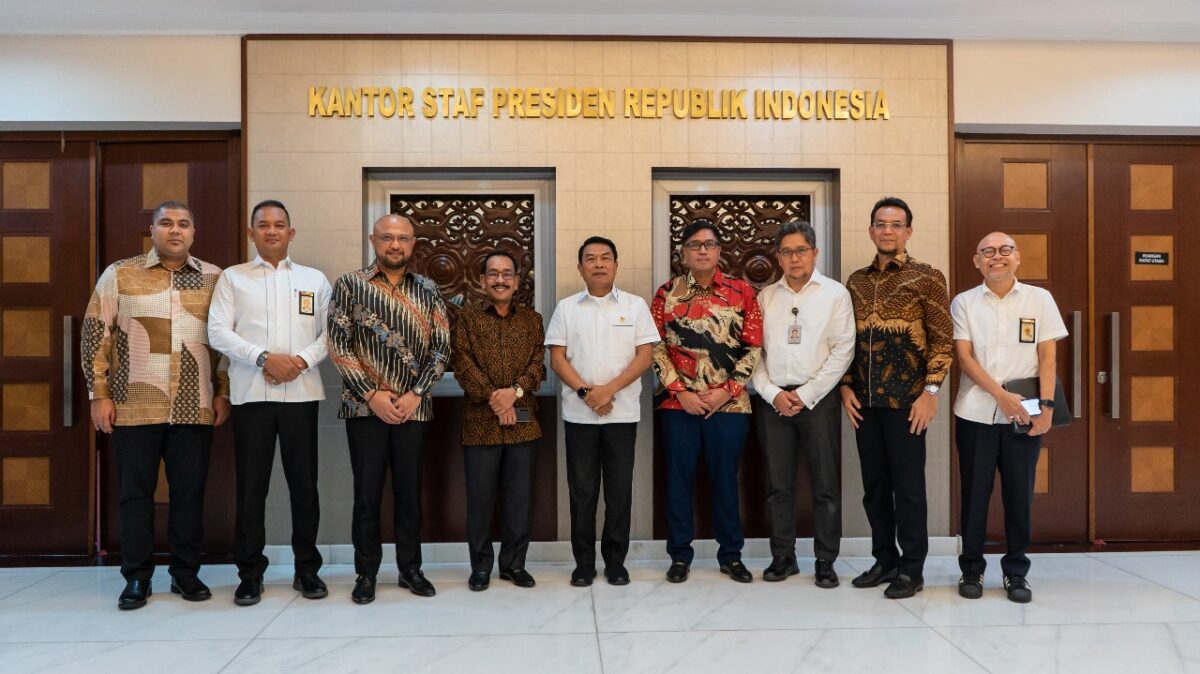Jakarta – The Chief of Staff to the President, General TNI (ret.) Dr. Moeldoko asked the International Tripartite Rubber Council to play a more optimal role in improving the rubber industry and the welfare of rubber farmers in ITRC country members.
As information, the ITRC consists of representatives from the three largest rubber producing countries in the world, namely Indonesia, Malaysia and Thailand. ITRC was formed in 2001 with the aim of improving the welfare of rubber farmers and stability of rubber price.
Throughout the meeting with the representatives from Malaysia Rubber Council (MRC) at the Bina Graha, Jakarta, Friday (5/1), Moeldoko conveyed that Indonesia together with Malaysia and Thailand already signed the Bali Declaration in 2001 which stated the three countries agreef to ensure fair and profitable income for smaller rubber farmers.
“We must jointly commit to improving the welfare of smallholder rubber farmers in ITRC member countries,” said Moeldoko.
He claimed that the condition of the rubber industry in Indonesia is currently deteriorating because the supply of raw materials is increasingly limited. This is influenced by the continuing decline in rubber farmers’ productivity.
Based on the data from the Central Statistics Agency (BPS), the gross domestic product (GDP) based on constant price (ADHK) of the rubber, rubber products and plastic industry was Rp. 15,85 trillion in the second quarter of 2023, or descending 7,18 percent from the same period in the previous year of Rp. 16,6 trillion.
“In fact, Indonesia is one of the largest rubber producing countries in the world. It’s wry,” said Moeldoko.
Moeldoko as General Chairman of Indonesian Farmers Association (HKTI) welcomed the proposal for cooperation from MRC on the application of the technology for rubber tapping, called micro cut tapping system.
This technology is considered to be able to increase rubber production by up to 300 percent. In addition, it can also be carried out during the rain season, thus increasing the productivity of rubber plantations overall.
“The MRC (micro tapping system) proposal is very relevant to be implemented in rubber plantations in Indonesia. Because it will increase rubber production per hectare per year, and also rubber trees can live longer,” he added.
Moeldoko expected the implementation of micro cut tapping system technology on smallholder rubber plantations will be piloted first, starting from the simulation, tapping and collecting of tapping results. This is to determine the effectiveness and time efficiency of the technology.
Previously, on the same occasion, the Chairman of the Malaysia Rubber Council (MRC), Dato Seri Supardi Md Noor said that the implementation of the micro cut tapping technology in Malaysia has successfully increasing the productivity of smallholder rubber. Before, the production reached 1,4 tons per hectare per year, and after the technology is applied, rubber production reaches 5,18 tons per hectare per year.
Nonetheless, added Dato Seri Supardi, implementing the micro cut tapping technology per rubber per tree requires quite expensive costs, around USD 11 per tree per year.
“This is certainly burdensome for smallholders farmers, so an innovative financing scheme is needed to accommodate this gap,” said Date Seri Supardi.
Furthermore, Dato Seri Supardi also added that MRC has already appointed a business entity that will help formulate a financing scheme for the implementation of micro cut tapping system technology on smallholder rubber plantations and others. Starting from processing, finished product to marketing to the whole world.
“We (MRC) are ready to cooperate so that the tapping technology which is currently being implemented in Malaysia can be immediately applied to the community and government-owned rubber plantation lands in Indonesia,” he concluded.
